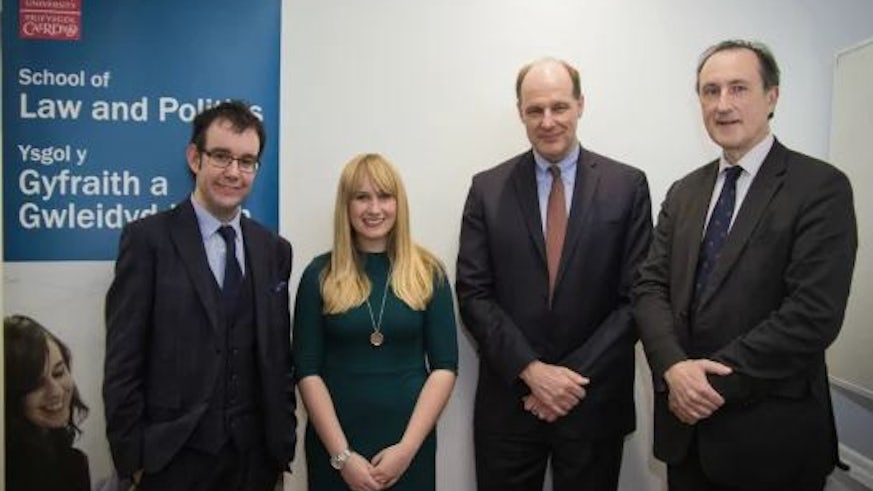New Critical Concepts in Law volumes published
3 Ionawr 2017

Professor Norman Doe and Dr Russell Sandberg are editors of two collections that have just been published by Routledge as part of their Critical Concepts in Law series.
The collections, Law and Religion and Law and History, each comprise of four volumes of previously published articles and chapters many of which are written by Cardiff authors. Both collections include new introductory chapters by Professor Doe and Dr Sandberg which review the development of the field and set the agenda for future scholarship.
The collection, Law and Religion explores how this area of study has increasingly become a focus of academic study in twenty-first century Law Schools. The editors argue that, since the events of 11 September 2001, the short- and long-term implications of multiculturalism, religious resurgence, and extremism have dominated public life both globally and domestically. Consequently, they say, the legal framework concerning the regulation of religion has changed dramatically over the last decade or so. There have been numerous developments at the global, regional, state, and sub-state level, and these changes have been accompanied by an unprecedented number of high-profile cases affecting religious individuals and groups. This has led to the growth of the study of Law and Religion becoming regarded as an academic subject for the first time, studied and researched like other legal sub-disciplines such as family law or employment law.
The introductory chapter, ‘Religion Law and Religious Law’, revisits the understanding of Law and Religion as being at least the study of religion law and religious law (as articulated in R Sandberg, 'Law and Religion' (Cambridge University Press, 2011)). It develops and critiques this understanding drawing upon the recent work of John Witte Jr.
The Law and History collection explores the development of the study of Legal History in England and Wales. The editors argue that the study of History is unavoidable in a common law system based on precedent. Doctrinal legal study is always a historical study; every review of the case law is an exercise in historical analysis looking at how the law has changed over time. However, they say that, despite this, Legal History is increasingly absent from the Law School curriculum. Much work on Legal History is now written in a way that makes it only accessible to other legal historians. This is to be regretted. Legal History is too important to be the preserve of legal historians. Historical work on law needs to be accessible to all law students and academics. And lawyers need to work with historians so we can learn from one another.
The introductory chapter, ‘Textual and Contextual Legal History’, explores why the decline of Legal History is to be regretted and explores how divisions within Legal History are to blame. It proposes a new way of understanding the subject as including at least the study of Textual and Contextual Legal History before contending that the study of Law and History must be an interdisciplinary endeavour.
The Law and History volume was launched on 2nd December 2016 as part of a visit by Professor John Witte Jr from Emory University. The event also saw the launch of Cardiff University's new Law and History research group convened by Dr Russell Sandberg and Dr Sharon Thompson of the School of Law and Politics, Cardiff University.
The Law department of the School of Law and Politics is renowned for its expertise in both Law and Religion and Legal History. It runs undergraduate courses in both as well as a postgraduate course in Canon Law, the first degree of its type in England and Wales since the Reformation. Cardiff Law is also home to the Centre for Law and Religion and has recently collaborated with the History department at Cardiff to form the Law and History research group.

